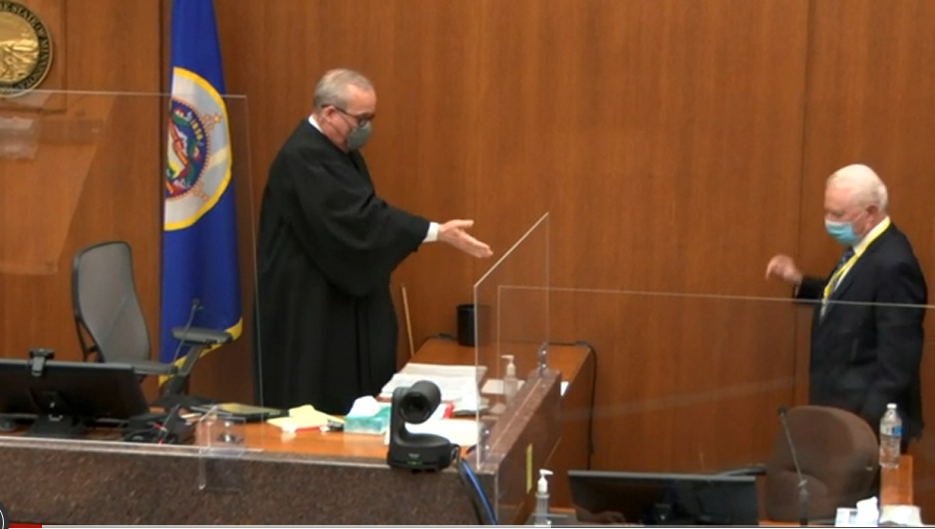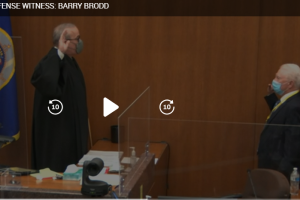The European Union May Welcome Fully Vaccinated U.S. Tourists As Early As This Summer.
As other countries have slowly made moves to welcome U.S. travelers, the European Union —except a handful of countries— has largely stayed out of the discussion. Until now.
Speaking with The New York Times in a Sunday interview, the European Commission president said the continent is looking at opening its doors to fully vaccinated Americans as early as this summer.

“The Americans, as far as I can see, use European Medicines Agency-approved vaccines,” said Ursula von der Leyen, president of the European Commission. “This will enable free movement and the travel to the European Union…Because one thing is clear: All 27 member states will accept, unconditionally, all those who are vaccinated with vaccines that E.M.A approves.”
As of right now, those E.M.A.-approved vaccines include the three that are currently available throughout the U.S.: Moderna, Pfizer/BioNTech, and Johnson & Johnson.
Though von der Leyen seemed hopeful in her interview, an exact timeline for when the E.U. will begin welcoming U.S. tourists remains unclear. It all depends “on the epidemiological situation,” she explained, adding that she sees the U.S. as making “huge progress” toward achieving herd immunity.
In the weeks leading up to von der Leyen’s interview, Iceland had already announced that it would allow vaccinated travelers from non-E.U. At the same time, Greece plans to welcome international tourists, including Americans, to visit, starting on May 15. Croatia, which for many months was the only E.U. country to accept U.S. visitors, recently eliminated its pre-arrival testing requirement for fully vaccinated travelers.
According to reporting from Travel+Leisure, the European Union has been exploring the possibility of creating a vaccine passport system with the U.S. In the meantime, it’s possible that a low-tech solution will be put in place until a digital version becomes available.
Florida Governor Threatens to Sue the CDC If Its Conditional Sail Order Is Not Lifted Soon.
As temperatures rise, signaling the approach of summer, tensions between the state of Florida and the Center for Disease Control and Prevention (CDC) are also heating up. Florida Gov. Ron DeSantis has threatened to sue the CDC if it doesn’t lift its “conditional sailing order” on cruise ships in time for them to resume sailing out of U.S. ports this summer.
On Friday, March 26, DeSantis made this declaration at Port Canaveral as he gathered with executives from several major cruise lines, including Carnival, Royal Caribbean, Norwegian Cruise Line, and Disney Cruise Line.
With three major cruise ports in Florida, millions of travelers pass through the Sunshine State specifically to board a cruise ship. Most sailings to the Bahamas, Caribbean, or Mexico start their journeys in either Miami, Fort Lauderdale’s Port Everglades, or Port Canaveral.
According to The Points Guy, Ashley Moody, Florida’s attorney general, also attended this meeting and is rumored to be exploring the state’s legal options ahead of this potential lawsuit against the CDC.
Gov. DeSantis wants to resume sailing before cruising season to prevent more revenue losses as several major companies such as Royal Caribbean, Celebrity Cruises, and Crystal Cruises have already announced plans to sail out of Bahamian and Caribbean ports this summer.
Currently, the CDC has a conditional sail order in place, which outlines several benchmarks that cruise lines must meet before they are allowed to resume U.S.-based operations. The document is 40 pages long with major guidelines including:
• providing a plan that will keep ships ’crews safe and healthy
• conducting a “simulated voyage” to test the ability of the cruise line to mitigate the risk of COVID-19 on its ships
• certification that ships meet all the requirements in the conditional sail order
With vaccine rollout going according to plan in most of the U.S., Gov. DeSantis, among others, believe the rules may be outdated and need to reflect the progress in both understandings and fighting the COVID-19 virus.
The CDC has not yet released any comments in response to Gov. DeSantis’ threat.
The CDC Eases Travel Guidelines For Fully Vaccinated Americans.
California Set To fully Re-open By June 15
More than a year after the COVID-19 pandemic began, the U.S. Centers for Disease Control and Prevention (CDC) finally has some good for travelers. According to new guidance released on Friday, April 2, the CDC now says that people who are fully vaccinated against the coronavirus can safely travel at “low risk.”
The announcement revises previous guidance against non-essential travel for all Americans while still advising that even fully vaccinated travelers should wear face masks and practice social distancing.
The CDC released this new guidance as recent studies have demonstrated the effectiveness of vaccines in preventing COVID-19 infections in real-world conditions. Despite this evidence, the CDC stops short of giving travelers a whole green light for venturing far from home.

“With millions of Americans getting vaccinated every day, it is important to update the public on the latest science about what fully vaccinated people can do safely, now including guidance on safe travel,” said CDC Director Dr. Rochelle Walensky. “We continue to encourage every American to get vaccinated as soon as it’s their turn, so we can begin to take steps back to our everyday lives safely.”
According to the CDC, fully vaccinated people can travel within the United States and do not need to test for COVID-19 before their trip or self-quarantine upon their return as long they still follow safety guidelines such as wearing a mask, avoiding crowds, socially distancing, and washing hands frequently.
For international travel, the CDC provides the following guidance:
• Fully vaccinated people can travel internationally without getting a COVID-19 test before travel unless the international destination requires it.
• Fully vaccinated people do not need to self-quarantine after returning to the United States unless required by a state or local jurisdiction.
• Fully vaccinated people must still have a negative COVID-19 test result before they board a flight to the United States and get a COVID-19 test 3 to 5 days after returning from international travel.
• Fully vaccinated people should continue to take COVID-19 precautions while traveling internationally.
The guidance for unvaccinated travelers has not changed. According to the CDC website, “Unvaccinated travelers should still get tested 1-3 days before domestic travel and again 3-5 days after travel. They should stay home and self-quarantine for seven days after travel or ten days if they don’t get tested after travel. CDC discourages non-essential domestic travel by those who are not fully vaccinated.”
To read the complete set of travel guidelines from the CDC, click here.
Several Cruise Lines Are Beginning to Require COVID Vaccinations For All Passengers.
Cities On Water.
As the travel industry gears up for the summer and COVID-19 vaccines continue to be distributed globally, government officials aren’t the only ones changing travel requirements for vaccinated visitors. After canceling itineraries for several months—and in some cases, even more than a year—cruise lines are starting to implement their own regulations to get back out on the high seas. These are the major cruise lines requiring all passengers and crew members to get fully vaccinated before sailing aboard their ships.
American Queen Steamboat Company
In February, American Queen Steamboat Company and sister company Victory Cruise Lines announced that they would begin implementing a vaccination requirement for all sailings beginning July 1, 2021. Crew members and non-shipboard employees across all seven vessels in both company fleets will also need to be fully vaccinated by that date.

Travelers hoping to embark on a Crystal Cruises sailing will need to be fully vaccinated at least 14 days before their cruise. To ensure this regulation is properly adhered to, passengers will be required to provide proof of vaccination before boarding the ship. Even before booking their cruise, passengers will also have to fill out a form acknowledging this vaccination requirement. As for the crew, they hail from places worldwide and will be expected to get vaccinated, depending on the availability of vaccines in their home countries.

Just four months ahead of its first sailing scheduled for July 1, Virgin Voyages announced it would require all passengers and crew members to be fully vaccinated before embarking the ship.
“Safety and security is our number one priority, and always has been our number one priority. We’ve heard the president talk about the acceleration of vaccines out there, whereby May, all adults could be vaccinated. So, we think that that’s an important criterium to create a safe environment on our ships,” Virgin Voyages CEO Tom McAlpin said in an interview aired on ABC News ’Good Morning America.
Although the vaccination requirement is not yet a company-wide policy, Royal Caribbean did announce that inoculation will be mandatory for guests in two specific areas.
In North America, all crew will be vaccinated, and any passenger above the age of 18 will also be required to show proof of a COVID-19 vaccine. In Israel, Royal Caribbean made headlines.
With its plans to offer “fully vaccinated sailings,” where both are, and guests above the age of 16 will need to be vaccinated against COVID-19.
Celebrity Cruises will begin sailing the Caribbean from St. Maarten starting on June 5, 2021. All crew members will be vaccinated, and adult passengers above 18 must also be fully vaccinated. For children under the age of 18, a negative PCR test taken within 72 hours of embarkation will be required.
These Are the Countries Welcoming Fully Vaccinated Travelers With Fewer Restrictions.
Feeling Cooped Up Too Long?
As the COVID-19 vaccine continues to be distributed across the globe, countries looking to boost their tourism numbers—and economies—are changing their entry requirements and restrictions, making it easier for vaccinated travelers to visit.
Here is a list of the countries already welcoming American tourists who are fully vaccinated and their new travel policies.

According to the Belize Tourism Board, this Central American country will waive its COVID-19 testing requirements for travelers who can prove that they have been fully vaccinated. International travelers must book their stay at a government-designated “Gold Standard Hotel” and download its health app.
Non-vaccinated travelers can also visit Belize, but they must prove a negative PCR COVID-19 test was taken within 96 hours of travel, or a negative rapid test was taken within 48 hours. The traveler also has the option to test upon arrival at the airport for $50.

IN GEORGIA, the U.S. Embassy has stated that American travelers who have received both doses of a COVID-19 vaccine are welcome to enter the country without getting tested before arrival. They will also not be required to quarantine.
Un-vaccinated visitors must arrive with a negative COVID-19 PCR test taken within 72 hours, get a follow-up PCR test on their third day in the country, and complete an application with their contact details and travel history.
Seychelles is welcoming fully vaccinated travelers as long as they can prove that at least two weeks have passed since they received their second dose. Unlike other countries with new rules for vaccinated travelers, proof of a negative COVID-19 test still is required. The person must have taken within 72 hours of traveling. Travelers must also fill out a health travel authorization showing their certificate of vaccination, test results, flight confirmation, and accommodation details. According to the Seychelles tourism board, once the majority of the country’s population is vaccinated, it will reopen to all travelers regardless of their vaccination status.
Previously, travelers headed to Romania were required to quarantine upon arrival. Now, the country’s National Committee for Emergency Situations has eased that restriction for vaccinated visitors. Travelers have to prove that at least ten days have passed since they received their second dose of the COVID-19 vaccine.
Although it is no yet, Greece is aiming to reopen to fully vaccinated tourists on May 14. International tourists with coronavirus antibodies or negative test results will also be welcomed to visit, though official requirements have not been announced. In the meantime, the country is hoping to increase its vaccination numbers, and plans are in place to begin vaccinated tourism workers once the elderly and medically vulnerable populations have received a vaccine.































